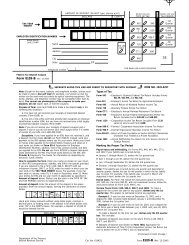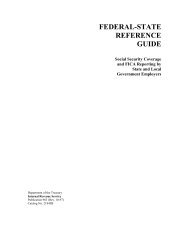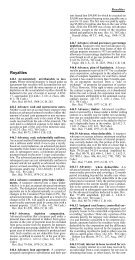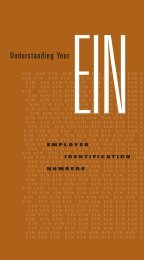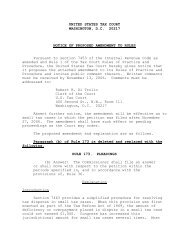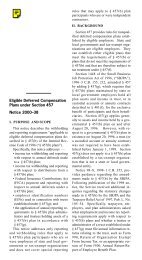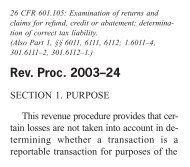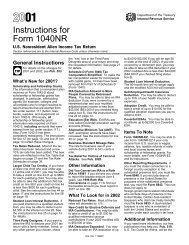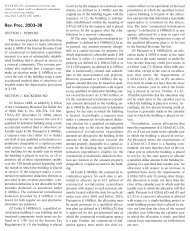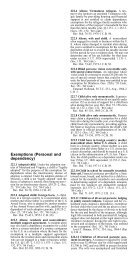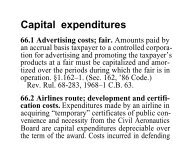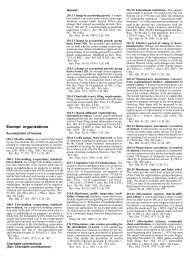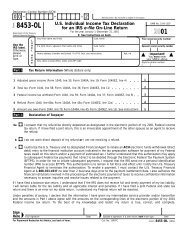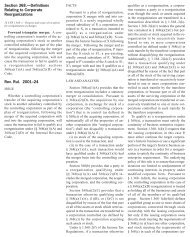Auto Dealerships - Audit Technique Guide - Uncle Fed's Tax*Board
Auto Dealerships - Audit Technique Guide - Uncle Fed's Tax*Board
Auto Dealerships - Audit Technique Guide - Uncle Fed's Tax*Board
Create successful ePaper yourself
Turn your PDF publications into a flip-book with our unique Google optimized e-Paper software.
Milford Motor Co. v. United States, 56-1 U.S.T.C. (CCH) Paragraph 9477 (DC-NH 1956).<br />
The decision by the jury was that the amount paid by the taxpayer to its stockholding<br />
president of $37,500 as salaries was reasonable. The court considered the following factors in<br />
determining the reasonableness of the compensation paid: Compensation paid in prior years;<br />
the nature of and extent and scope of the president’s work; the president’s competency; the<br />
availability of others to do the same sort of work; and any special relationships between the<br />
officer and any other person who is in a position to furnish business to the company or to the<br />
officer.<br />
Key Buick Company v. Commissioner, T.C. Memo. 1976-303, CCH 34,036(M). The Tax<br />
Court redetermined the amount considered to be reasonable compensation to a part-time<br />
president stating that "* * * Although the services of the president were valuable to the<br />
dealership because of his knowledge of the business and his contribution to routine business<br />
decisions, his services were not as valuable as those of a full-time president * * *."<br />
East Tennessee Motor Company v. United States, 453 F.2d 494 (6th Cir. 1971). Jury<br />
decision in which it was determined that the compensation paid to the six officer-shareholders<br />
was unreasonable and, therefore, not deductible.<br />
See decisions where the reasonable compensation issue was addressed in the auto dealership<br />
context:<br />
a. <strong>Auto</strong>motive Investment Development, Inc. v. Commissioner, T.C. Memo. 1993-298, CCH<br />
49,140(M);<br />
b. William Wright and Lynne L. Wright v. Commissioner, T.C. Memo. 1993-328, CCH<br />
49,174(M).<br />
Sub-Prime Issue<br />
For tax purposes, how should a vehicle dealer report the transfer of a sub-prime finance contract<br />
(retail installment agreement) to an unrelated finance company?<br />
What Is a Non-prime or Sub-prime Finance Contract?<br />
Many potential vehicle purchasers cannot obtain financing through traditional means like banks,<br />
credit unions or manufacturers’ finance companies because of poor credit. These individuals are<br />
referred to as "non-prime" or "sub-prime" consumers, depending on their credit rating (non-prime<br />
having a higher credit rating than sub-prime). To tap into this large market, many vehicle<br />
dealerships (particularly used car dealerships) offer their own retail installment agreements to<br />
these customers. These contracts are known in the industry as "non-prime" or "sub-prime"<br />
financing.<br />
How a Non-prime or Sub-prime Plan Works<br />
19-14



